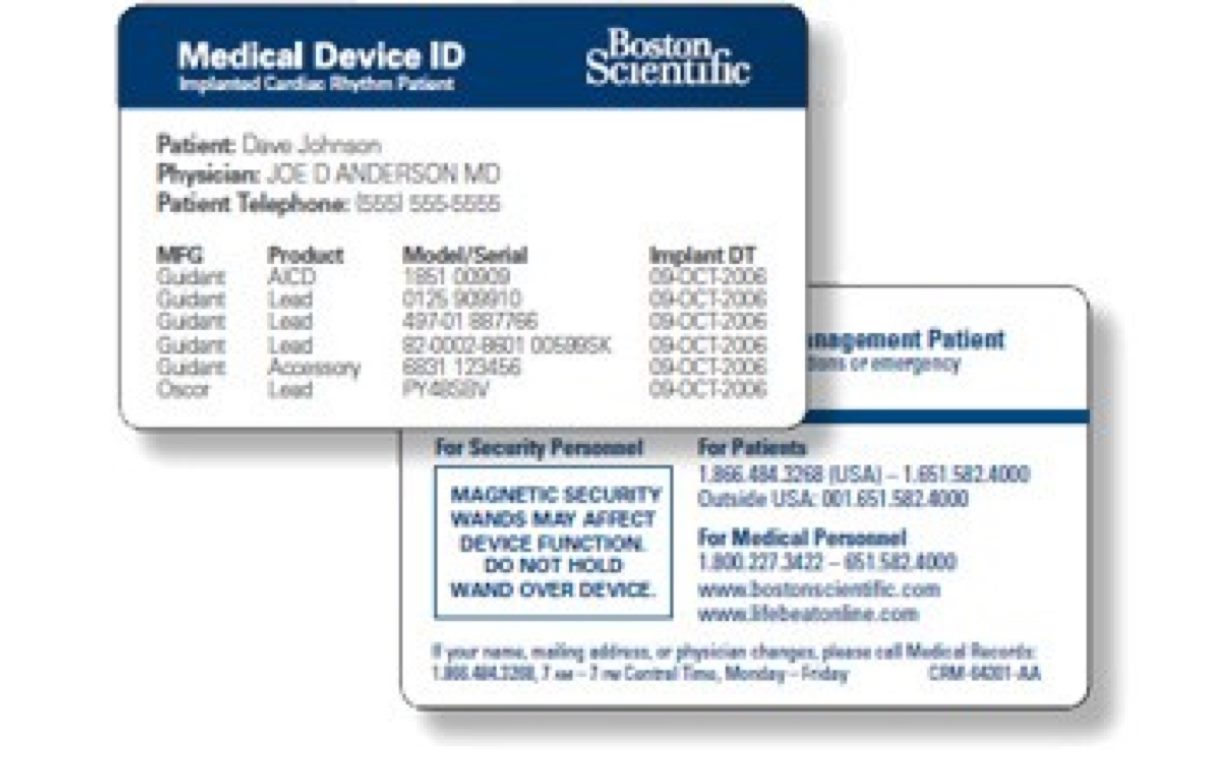
Post-recovery guidelines
Before leaving the hospital, you will be given instructions regarding follow-up office and/or clinic visit appointments. After your procedure, you’ll be prescribed blood-thinning medications. Take these as prescribed by your doctor, and call your doctor if you have any symptoms that cause you concern. Do not stop taking your medications without first talking to your doctor.
Medical Device ID Card
Whether you’re going away for the weekend or running a quick errand, it’s important to carry your Medical Device Identification Card with you at all times. Your Medical Device ID Card contains your name, your doctor’s name and phone number, and the model numbers of your device and leads. In an emergency, the card will alert medical and security personnel that you have an implanted device. You will be given a temporary Medical Device ID Card when you receive your TAVR device. Your permanent card will be mailed to your home approximately six to eight weeks after your implant.

Moving or selecting a new doctor
Please tell us if you move or get a new doctor. You can use our online patient portal or call us at 1-800-728-3282 to update your record. We will send you a new ID card.
Regular follow-up visits
It’s important to maintain all follow-up visits, even if you’re feeling well. Your doctor will check your heart function, your healing, and your overall health. You can expect to schedule follow-up appointments 30 days and one year after your procedure.
When to call 911
Don’t wait for your next appointment and contact your doctor if you are experiencing discomfort or notice changes in your health. Go to an emergency room or call 911 if you experience any of the following:
- Chest pain or trouble breathing
- Sudden numbness or weakness in your face, arms or legs
- A bowel movement that is dark black or bright red
- Dizziness or fainting
- Increased swelling in your hands, feet or ankles
- Shortness of breath that doesn’t get better by resting